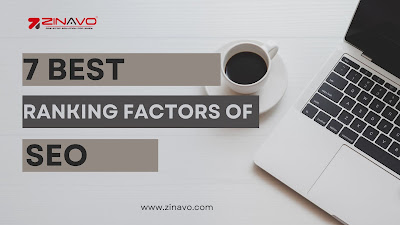The 7 Best Ranking Factors for SEO

Introduction: In the vast landscape of the internet, getting your website noticed amidst the sea of competitors can feel like finding a needle in a haystack. SEO Service is the art and science of optimizing your website to rank higher on search engine results pages (SERPs), ultimately driving more organic traffic to your site. But with Google's ever-evolving algorithms, what are the key factors that can help propel your website to the top of the search rankings? In this guide, we'll explore the seven best ranking factors for SEO, demystifying the process and empowering you to enhance your website's visibility. Quality Content: Quality content is the cornerstone of any effective SEO strategy. Google and other search engines prioritize content that is relevant, informative, and valuable to users. This necessitates creating content tailored to address the specific needs and interests of your target audience. Whether it's blog posts, articles, product descriptions, or mult...